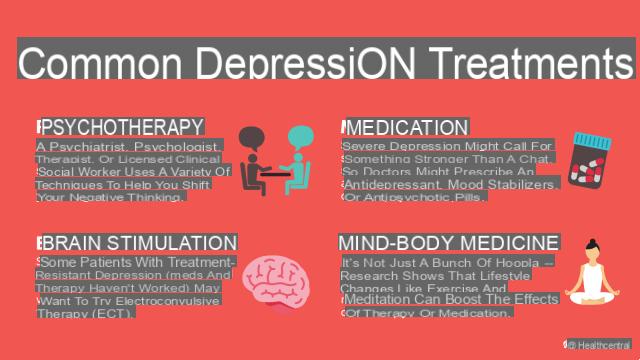
Definition
What is Depression?
Depression is one psychiatric pathology rather widespread which can affect both adults - young and old - as well as children.
Contrary to what one might think, depressive illness does not only affect the patient's emotional sphere and mood, but also affects the body, influencing behavior and manifesting itself with physical symptoms.
Depression can occur in both male and female patients, however, it is estimated that the disease tends to affect the latter category most.
Types of Depression
Types of Depressive Diseases
The term "depression" does not indicate a single type of disease, in fact, they exist diverse forme depressive, each with unique characteristics. Here are some of them:
- Unipolar depression o major depressive disorder: it is one of the most serious forms of depression. Its symptoms prevent normal daily activities (for example, sleeping and eating), but also activities that under normal conditions give positive feelings and pleasure.
- Dysthymic disorder o dysthymia: it is a disorder characterized by symptoms very similar to those of major depression, although they tend to manifest themselves in a milder way.
- Depressive disorder not otherwise specified: this is a category in which there are disorders that cannot be classified into other types of depressive forms.
- Bipolar disorders o manic-depressive pathologies: these are disorders characterized by the alternation of depressive states with manic or hypomanic states. In turn, bipolar disorders are divided into:
- Bipolar I disorder: characterized by at least one episode of mania or mixed with depressive episodes;
- Bipolar II disorder: characterized by states of hypomania (never of mania) that alternate with depressive episodes;
- Cyclothymic disorder or cyclothymia: has a minimum duration of at least two years and is characterized by the alternation of mild to moderate depressive episodes and hypomanic episodes.
All forms of depression with their respective characteristics are listed in the Diagnostic and Statistical Manual of Mental Disorders (DSM), now in its fifth edition (January 2021).
For further information: Types of Depression
Symptoms
How does Depression manifest itself?
The symptoms with which depression occurs can vary according to the depressive form that affects the patient and its severity, not to mention that there may also be a subjective variability from individual to individual.
However, here are some of the main symptoms that can occur in the presence of depressive disorders:
- Persistent and accentuated low and sad mood;
- Frustration;
- Decreased interest and pleasure in carrying out any type of activity;
- Low self-esteem;
- Difficulty concentrating
- Absence of sexual desire
- Lack of appetite
- Insomnia;
- Asthenia.
Depression can often be associated with anxiety and thoughts of suicide or self-harm.
For further information: Symptoms DepressionTreatment
How to cure Depression?
Treatment of depression depends on several factors, such as the depressive form affecting the patient and its severity. Furthermore, the therapy that the doctor decides to implement can also be varied according to the patient's response to the same treatment.
However, we can say that, normally, the treatment of depression has one combination therapy which associates a Pharmacological treatment to a psychotherapeutic treatment.
The drugs used in the treatment of depression are the so-called antidepressant drugs which include the following classes:
- Tricyclic antidepressants (TCAs);
- Selective Serotonin Reuptake Inhibitors (SSRIs);
- Norepinephrine and serotonin reuptake inhibitors (NSRIs);
- Selective norepinephrine reuptake inhibitors (NaRIs);
- Modulators of serotonergic transmission (SARI);
- Modulators of noradrenergic and serotonergic transmission (NaSSA);
- Dopamine and norepinephrine reuptake inhibitors (DNRIs);
- Monoamine oxidase inhibitors (non-selective MAOIs and selective MAO-A).
What to do in case of Depression?
The answer to this question is not simple. Of course, the first thing to do would be to ask for help to the doctor, or to family, friends or confidants. It is important, in fact, to act from the very early stages of the disease to ensure one early diagnosis it's a timely intervention. It must be said, however, that those who experience depressive feelings often tend not to seek help, perhaps out of fear of being judged, out of shame or a form of rejection of this same disease.
For further information: Remedies for Depression - Dos and Don'ts
Other articles
- Depressive Disorders: Major Depressive Episode
- Symptoms Major Depression
- Dysthymic Disorder
- dysthymia
- Dysthymia Syntomy
- Mania and Manic Episode
- Ipomania
- Bipolar disorder
- Cyclothymia
- Antidepressants, drugs for depression


























